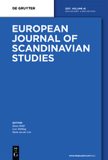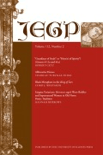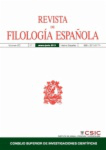
Listy Filologicke
Scope & Guideline
Exploring the Intersections of History, Language, and Literature.
Introduction
Aims and Scopes
- Historical Linguistics and Philology:
The journal emphasizes the study of language development, particularly focusing on Latin and Czech. It investigates the evolution of language structures, syntax, and semantics from the medieval period to contemporary times. - Cultural History and Material Culture:
Listy Filologicke explores the cultural dynamics of various historical periods, especially the medieval and early modern eras. It examines artifacts, texts, and practices that reflect the material culture of societies. - Literary Studies and Textual Analysis:
The journal publishes research on literary works, including poetry, prose, and drama. It provides critical analyses of texts, their historical contexts, and their impact on literature and culture. - Interdisciplinary Approaches:
The journal encourages interdisciplinary research that combines linguistics, history, literature, and cultural studies, fostering a comprehensive understanding of the subjects. - Neo-Latin Literature:
A unique focus on Neo-Latin literary traditions, especially in the Czech lands, highlighting its significance and contributions to the broader European literary landscape.
Trending and Emerging
- Cultural Dynamics and Influence:
There is an increasing emphasis on the cultural interactions and influences between different societies, particularly during the 16th to 18th centuries, showcasing the journal's commitment to understanding historical contexts. - Linguistic Evolution and Syntax Studies:
Recent articles have focused on the evolution of linguistic structures, particularly in Old Czech and Latin, indicating a growing interest in syntax and discourse analysis. - Material Culture and Book History:
The exploration of material culture, especially in relation to book history and printing practices in the Czech lands, has gained traction, reflecting an interdisciplinary approach that connects literature with historical artifacts. - Gender and Religious Studies:
Emerging themes in gender studies and their intersection with religious practices and literature are becoming more pronounced, indicating a broader examination of social issues within the historical context. - Digital Humanities and Textual Analysis:
A trend towards employing digital tools for textual analysis and research methodologies is evident, suggesting a modernization of approaches to classical texts.
Declining or Waning
- Traditional Hagiography Studies:
Research on traditional hagiographic texts has decreased, suggesting a shift away from purely religious literature in favor of secular and cultural themes. - Medieval Manuscript Studies:
The frequency of articles specifically addressing medieval manuscript studies has waned, possibly indicating a move towards more contemporary literary analysis and cultural studies. - Classical Philosophy:
There appears to be a reduction in the focus on classical philosophical texts and their analysis, hinting at a broader move towards modern interpretations and applications of philosophical ideas. - Early Modern Political Texts:
Research focused on early modern political texts and their implications has become less prominent, suggesting a possible shift in interest towards more recent political and social issues.
Similar Journals

Sibirskii Filologicheskii Zhurnal
Illuminating the Depths of Language and Literary TheorySibirskii Filologicheskii Zhurnal is a prestigious academic journal published by the Russian Academy of Sciences, Institute of Cytology and Genetics. With ISSN 1813-7083, it is dedicated to advancing research in the fields of Cultural Studies, Linguistics and Language, and Literature and Literary Theory, and has achieved notable rankings, including Q2 in Cultural Studies and Linguistics, and Q1 in Literature for 2023. The journal provides a platform for scholarly discourse, contributing valuable insights to its fields with an evolving scope that spans from 2018 to 2024. Though not an open-access journal, Sibirskii Filologicheskii Zhurnal serves as a vital resource for researchers, professionals, and students in the Russian Federation and beyond, fostering a deeper understanding of linguistic and literary phenomena. Its commitment to high-quality content makes it an essential addition to any academic's library.

Gripla
Navigating the Evolving Landscape of Linguistic and Literary ScholarshipGripla, published by the Arni Magnusson Institute for Icelandic Studies, stands as a significant academic journal in the fields of linguistics and literary studies. With an ISSN of 1018-5011, this esteemed journal has been releasing cutting-edge research since its inception in 2011. Although currently categorized as Q4 in Linguistics and Language and Q3 in Literature and Literary Theory for 2023, it has showcased robust scholarship with a Scopus rank of #327 in Literature and Literary Theory, placing it within the 70th percentile of its category. Gripla serves as a vital platform for the exploration of Icelandic studies, fostering a deeper understanding of language and literature in a rapidly evolving academic landscape. While it is not an open-access journal, its contributions are essential for researchers, professionals, and students eager to engage with new developments in the linguistics and literary discourse. Situated in the heart of Reykjavik, Gripla continues to enrich the scholarly community by providing insights that bridge traditional knowledge with contemporary relevance.

European Journal of Scandinavian Studies
Advancing the frontiers of Scandinavian scholarship.European Journal of Scandinavian Studies is an esteemed journal published by Walter de Gruyter GmbH, dedicated to advancing scholarship in the fields of Cultural Studies, Linguistics and Language, and Literature and Literary Theory. Since its inception in 2010, the journal has been a pivotal platform for researchers and scholars, showcasing cutting-edge research and critical discussions pertaining to Scandinavian languages and cultures. With an ISSN of 2191-9399 and an E-ISSN of 2191-9402, the journal emphasizes accessibility to impactful academic work, despite its current non-open access model. While the journal is categorized within the Q4 quartile for Cultural Studies and Linguistics/Language, it has shown notable potential in ranking higher in its specialized domains, fostering a growing community of researchers invested in Scandinavian studies. The journal's office is located in Berlin, Germany, further enriching its European scholarly context. As it continues to evolve, the European Journal of Scandinavian Studies serves as a vital resource for academics seeking to engage deeply with the multifaceted aspects of Scandinavian culture and linguistics.

LINGUA E STILE
Engaging with Contemporary Debates in Linguistic TheoryLINGUA E STILE, published by SOC ED IL MULINO, is a distinguished academic journal based in Italy that delves into the intricate realms of linguistics, literature, and philosophy. With an ISSN of 0024-385X, this journal has been a vital platform for scholarly discourse since its inception, covering a broad spectrum of topics from linguistic theory to literary analysis. Although it currently holds a Q4 category ranking in 2023 across multiple disciplines—specifically in Linguistics and Language, Literature and Literary Theory, and Philosophy—it remains committed to fostering insightful contributions that challenge and expand conventional understanding in these fields. While it does not offer open access, the journal diligently focuses on publishing high-quality research that appeals to academics, professionals, and students alike. With the convergence of multi-disciplinary approaches, LINGUA E STILE is positioned to engage with contemporary debates and developments, enriching the academic landscape from its base in Bologna, Italy, and inviting contributions that exemplify the evolving intersections of language and thought.

Zeitschrift fur Katalanistik
Connecting Scholars in the World of Catalan LinguisticsZeitschrift für Katalanistik is a distinguished academic journal published by Albert Ludwig University in Germany, catering to the fields of Linguistics and Literature. With an impressive converged history from 2010 to 2023, this journal operates under rigorous academic scrutiny, as evidenced by its classification in the Q3 quartile for Linguistics and Q2 for Literature and Literary Theory. It holds a respectable ranking in the Scopus database, indicating its solid contribution to ongoing scholarly dialogue, particularly in the realms of both language and literary studies. Despite not currently offering Open Access options, the journal provides a vital platform for researchers, professionals, and students seeking to publish and explore contemporary issues in Katalan studies. With its comprehensive scope and academic rigor, Zeitschrift für Katalanistik remains an essential resource for anyone passionate about the intersection of Catalan language and literature.

Archivum
Unlocking Knowledge in Language and Literary TheoryArchivum, published by UNIV OVIEDO in Spain, stands as a vital resource in the fields of Linguistics and Language as well as Literature and Literary Theory. With an impact factor reflective of its commitment to scholarly excellence, this journal has proudly maintained an Open Access model since 1951, ensuring that its rich repository of knowledge is freely available to researchers, professionals, and students alike. Covering a converged span from 2019 to 2023, Archivum has strategically positioned itself within the academic milieu, currently categorized in the Q4 for Linguistics and Language and Q3 for Literature and Literary Theory as of 2023. The journal is indexed in Scopus, with rankings that reflect its growing influence, such as #690 in Literature and Literary Theory and #887 in Language and Linguistics. Despite its challenges in visibility, Archivum remains essential for those seeking to engage with contemporary discussions and research within the humanities. Located in the heart of Asturias, it embodies the scholarly spirit of Spain, fostering a collaborative environment for innovation and inquiry in linguistic and literary studies.

JOURNAL OF ENGLISH AND GERMANIC PHILOLOGY
Advancing Scholarship in English and Germanic StudiesJournal of English and Germanic Philology, published by University of Illinois Press, stands as a prestigious forum for scholarly discourse in the fields of linguistics and literary studies. With its ISSN 0363-6941 and an impressive impact factor aligning it within the Q1 and Q2 quartiles in key academic categories, this journal delves into nuanced explorations of both the English and Germanic languages, enriching the understanding of language and its literary frameworks. The journal aims to foster interdisciplinary dialogue, offering cutting-edge research that appeals not only to linguists and literary theorists but also to educators and cultural historians alike. Although the journal is not open access, its contributions are essential for anyone keen on enhancing their knowledge of linguistic phenomena and literary narratives from these influential linguistic traditions. With a commitment to publishing innovative and rigorous scholarship, the Journal of English and Germanic Philology is a vital resource for academics seeking to advance their work in language and literature.

REVISTA DE FILOLOGIA ESPANOLA
Connecting Scholars Through Open Access ResearchREVISTA DE FILOLOGIA ESPANOLA is a distinguished academic journal dedicated to the fields of linguistics and literature, published by the CONSEJO SUPERIOR INVESTIGACIONES CIENTIFICAS (CSIC) since 1954, and has been an Open Access journal since its inception. Situated in Madrid, Spain, this journal has emerged as a crucial platform for the dissemination of scholarly research, with notable rankings including Q2 in Linguistics and Language and Q1 in Literature and Literary Theory as of 2023. The journal's commitment to fostering academic dialogue is reflected in its impressive Scopus rankings, including a 79th percentile in the Arts and Humanities for Literature and Literary Theory. Covering a wide range of topics from linguistic theory to literary critique, REVISTA DE FILOLOGIA ESPANOLA is essential reading for researchers, professionals, and students alike, providing valuable insights and cutting-edge research in the ever-evolving landscape of Spanish philology.

Caplletra
Advancing Open Access Scholarship in LinguisticsCaplletra is a distinguished open-access journal dedicated to the field of linguistics and language studies, published by PUBL ABADIA MONTSERRAT since its inception. Based in Barcelona, Spain, this journal has been a vital resource for researchers, professionals, and students engaged in the intricate explorations of language and its applications since its transition to open access in 2005. Despite its current quartile ranking of Q4 within the Linguistics and Language category as of 2023, Caplletra continues to serve as an inclusive platform, fostering a dialogue that encourages a diverse range of scholarly contributions. Covering an expansive scope in the converged years from 2018 to 2024, it plays a crucial role in disseminating innovative research and insights. With its ISSN 0214-8188 and E-ISSN 2386-7159, Caplletra is committed to making academic work accessible to all, enhancing the landscape of linguistic scholarship and reflecting the evolving nature of language studies.

Etudes Romanes de Brno
Cultivating a Rich Exchange of Scholarly PerspectivesEtudes Romanes de Brno, published by Masaryk University, Faculty of Arts, is a distinguished academic journal that has been contributing to the fields of Linguistics and Language as well as Literature and Literary Theory since its inception. With an ISSN of 1803-7399 and E-ISSN 2336-4416, this open-access journal has been a valuable resource for scholars since 2009, enhancing accessibility to a broad audience of researchers and students in the Czech Republic and beyond. The journal's impact is underscored by its categorization in the Q2 and Q3 quartiles for literature and linguistic studies as of 2023, reflecting its commitment to rigorous academic discourse. With Scopus rankings placing it in the 57th and 31st percentiles for its respective fields, it continues to attract high-quality submissions that explore contemporary issues in literary studies and language analysis. Etudes Romanes de Brno promises to remain an essential platform for the exchange of scholarly ideas, fostering growth and innovation in the humanities.